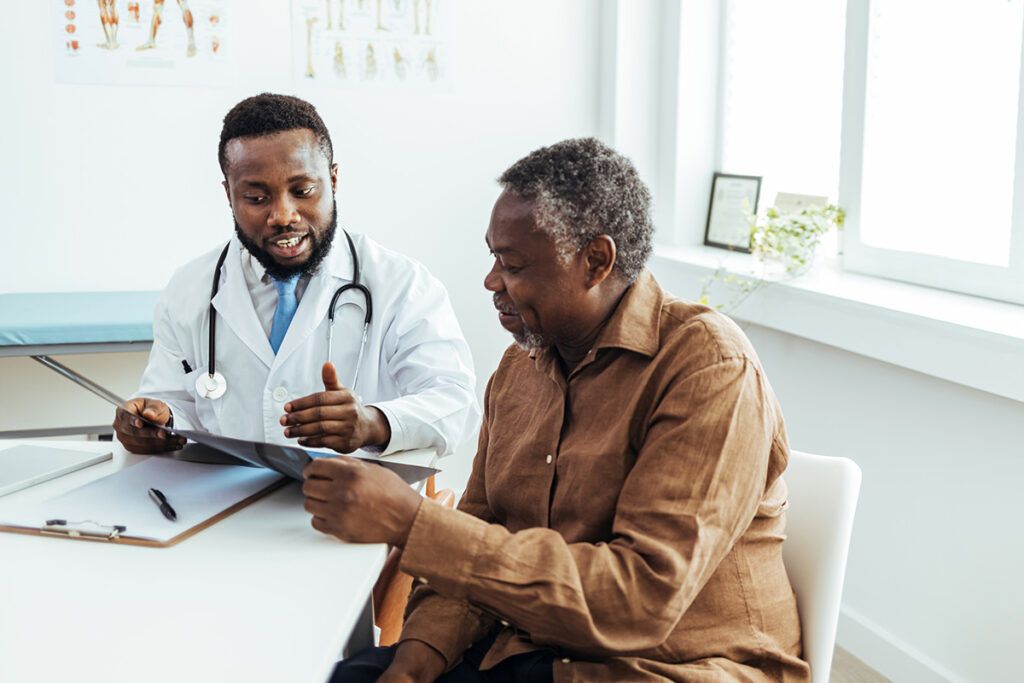Lung cancer is one of the most serious and common types of cancer. It does not typically present any symptoms in its early stages. This can often cause a delayed diagnosis and initiation of treatment.
The most common cause of lung cancer is smoking, but it may also occur even if you have never smoked. Exposure to radiation or certain cancerous agents may also increase the risk of developing the condition.
Preventing lung cancer

There’s no absolute way to ensure you don’t develop lung cancer. But there are several steps you can take to significantly lower your risk.
Quit smoking
Smoking causes 80–90% of lung cancer cases in the United States. If you smoke, you should consider quitting, and if you don’t smoke, you should not start.
Cigarettes contain several cancer-causing agents, known as carcinogens, which can significantly raise your risk of developing various types of cancer, particularly lung cancer.
Avoid secondhand smoke
Inhaling smoke from the people around, like inside a house or car, can increase the risk of lung cancer. In countries where smoking is common, around 10-20% of lung cancer cases involve nonsmokers.
Test your home for radon
The Environmental Protection Agency recommends everyone test their home for radon.
Radon is a gas that has no smell or color. It comes from the radioactive decay of small amounts of uranium that may be present in rocks and soils.
Indoor radon exposure can significantly raise your risk of developing lung cancer. Testing your house and taking the relevant steps to prevent radon from entering your house can help prevent lung cancer.
Use appropriate protective equipment at work
Certain jobs may repeatedly expose you to carcinogens. Always wearing appropriate safety clothing is important, along with taking precautions when handling hazardous materials. This includes working with substances that you may inhale or handle.
Taking the appropriate precautions can help protect you against any agents that can increase the risk of lung cancer.
Use protection from air pollution
People living in areas with high pollution levels have around a 40% greater risk of developing lung cancer compared to those living in areas with good quality air.
If you visit or live in an area with high air pollution, you may consider wearing a facemask or using other devices that protect your airways. This can help by lowering the risk of inhaling cancerogenic particles that may cause lung cancer.
Maintain a healthy lifestyle
Exercising regularly and eating a balanced diet rich in fruit and vegetables can help lower the risk of cancer, including lung cancer.
Fruits and vegetables are rich in vitamins and minerals that can help maintain your body’s health and prevent the onset of several health conditions, including cancer.
About lung cancer and its forms
There are various types of lung cancer. The most common is non-small cell lung cancer (NSCLC), occurring in around 80–85% of lung cancer cases.
NSCLC has several subtypes, including:
- adenocarcinoma
- squamous cell carcinoma
- large cell carcinoma
Small-cell lung cancer (SCLC), also called oat cell cancer, occurs in around 10–15% of lung cancer cases. SCLC tends to spread and grow faster, and, in most cases, it has already spread to other parts of the body at the time of diagnosis.
Other rare types of lung cancers include:
- lung carcinoid tumors
- cystic carcinomas
- lymphomas
- sarcomas
- hamartomas, a type of benign lung cancer
Sometimes, people may not experience any lung cancer symptoms until it reaches an advanced stage. These symptoms may include:
- a new cough that does not go away
- shortness of breath
- coughing up blood
- chest pain
- fatigue
- recurring lung infections
- unexplained weight loss
If you experience any of these symptoms, you should contact a doctor or healthcare professional for further examination.
While the onset of these symptoms may not be linked to lung cancer, a prompt diagnosis and treatment may prevent potential cancer from progressing and spreading to other areas of the body and improve outcomes.
How lung cancer is treated
Lung cancer treatment depends on several factors, including whether it has spread, its type, and your medical history. The treatment for NSCLC may include:
- radiation therapy (radiotherapy)
- chemotherapy, like:
- cisplatin
- paclitaxel (Taxol)
- docetaxel (Taxotere)
- targeted therapy, like:
- bevacizumab (Avastin)
- ramucirumab (Cyramza)
- immunotherapy, like:
- surgery
Surgery is often only an option during the early stages of lung cancer and if it has not spread to other areas of the body.
Radiotherapy and chemotherapy are usually the most common approaches, as they can help shrink tumors by killing the cancerous cells and preventing their growth.
If you need help covering the cost of medications, the free Optum Perks Discount Card could help you save up to 80% on prescription drugs. Follow the links on drug names for savings on that medication, or search for a specific drug here.
